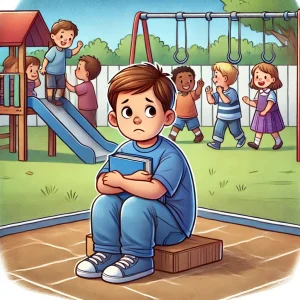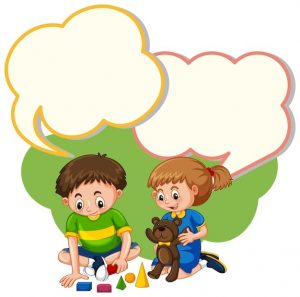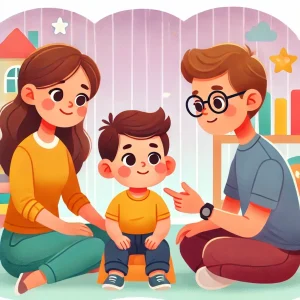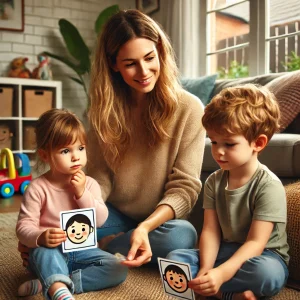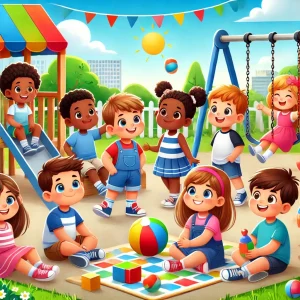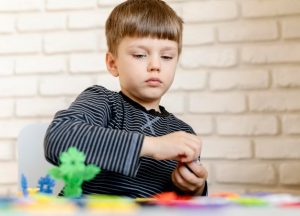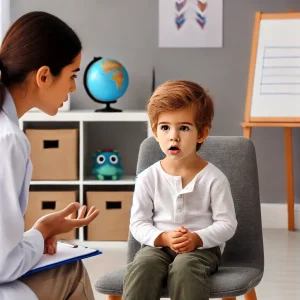Helping Toddlers Talk: Speech Delays in 2-3 Year Olds
By Rajini D
Last Updated: March 19, 2024
As you navigate the journey of parenting, it’s natural to cherish each milestone your little one achieves. However, when it comes to speech and language development, you might find yourself wondering if your toddler is on track. If your 2- or 3-year-old hasn’t started talking as much as you anticipated, it’s understandable to feel a mix of concern and curiosity. “Is this normal?” “Should they be saying more by now?” These are common questions many parents ask.
Firstly, let’s breathe a collective sigh of relief and acknowledge that every child’s development journey is unique. Some toddlers are chatterboxes by their second birthday, while others take a more observant approach to communication, choosing to speak when they’re ready. If your little one falls into the latter category, you’re not alone. Many families are navigating this very situation, seeking ways to support their child’s speech development with both patience and positivity.
Understanding Speech Delays
What Are Speech Delays?
Speech delays occur when a child’s language skills lag behind those typical for their age. Unlike other developmental delays, which might affect a broad range of skills from motor to cognitive abilities, speech delays are specifically related to the acquisition and use of language. This includes understanding what is said (receptive language) and the ability to express oneself with words (expressive language). Recognizing the distinction helps in tailoring the right support for your child.
Know more: Understanding Speech Delay: Causes, Milestones, and Therapy
Identifying Speech Delays in Toddlers
How do you know if your toddler might be experiencing a speech delay? Here are some signs to watch for in 2-3-year-olds:
- Limited Vocabulary: By age 2, most children can use at least 50 words and start combining them into simple sentences. If your child uses fewer words or isn’t combining words, it might be a sign to pay closer attention.
- Difficulty Following Directions: If your toddler struggles to understand simple instructions, it could indicate a delay in receptive language skills.
- Lack of Gestures: Children often use gestures, like pointing or waving, to communicate before they can speak. A lack of these gestures can be a sign of a speech delay.
- Limited Imitation of Sounds or Words: Toddlers typically mimic sounds, words, and actions from their environment. Limited imitation could suggest a delay in speech development.
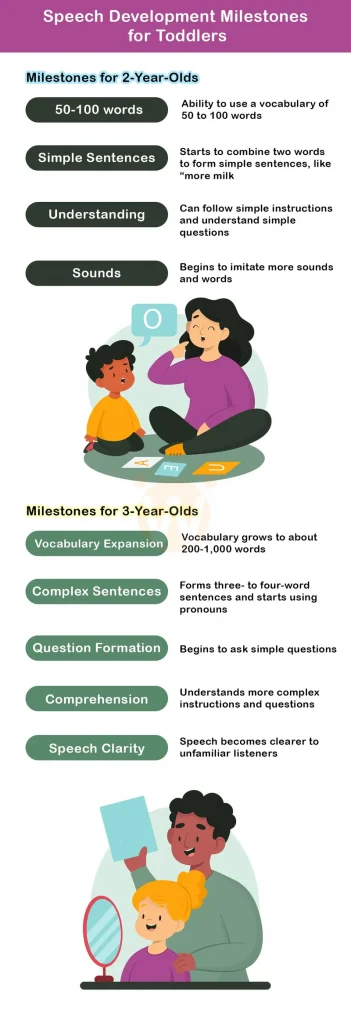
Common Causes of Speech Delays
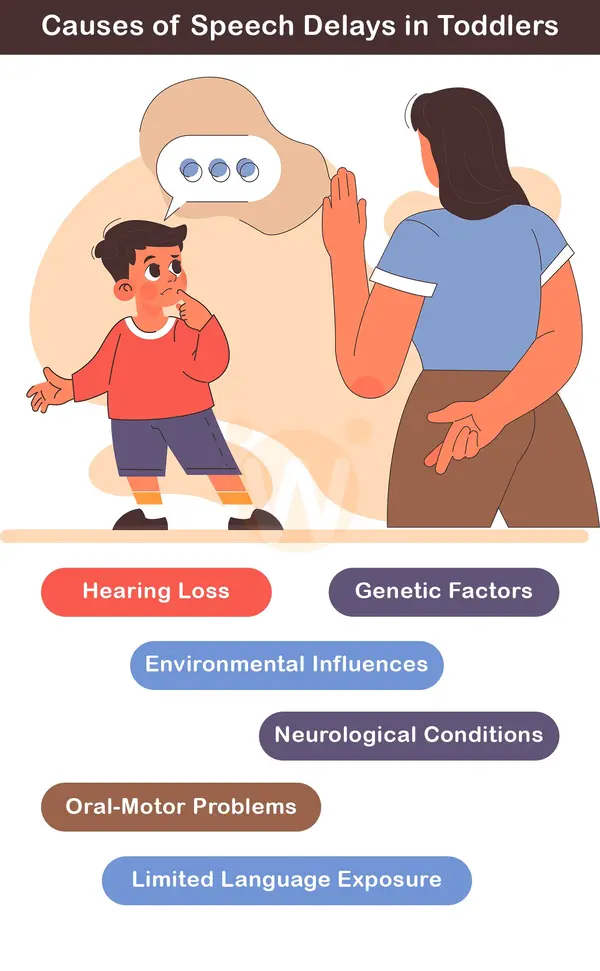
Several factors can contribute to speech delays in toddlers, ranging from environmental influences to genetic predispositions. Understanding these can help in addressing the delay more effectively:
- Hearing Impairments: Even mild hearing loss can affect a child’s ability to develop speech and language skills.
- Oral-Motor Issues: Problems with the physical mechanisms of speech production can lead to delays.
- Neurological Disorders: Conditions like autism spectrum disorder or cerebral palsy can impact speech development.
- Family History: Genetics play a role in speech and language development, with delays sometimes running in families.
- Environmental Factors: Limited exposure to speech and language in the environment, such as through interaction and conversation, can affect a child’s language skills.
By understanding what speech delays are, how to identify them, and what might cause them, you’re taking a critical first step in supporting your child’s development. Remember, identifying a potential delay early on can make a significant difference in your child’s communication skills. At Wellness Hub, we’re committed to providing resources and support to help you navigate this journey.
When to Seek Professional Help
Realizing your child might need extra support with their speech development can be daunting, but knowing when and how to seek professional help can guide you through this process. Let’s explore how consulting with pediatricians and speech-language pathologists (SLPs) can make a significant difference and why early intervention is pivotal.
Know more: Navigating Online Speech Therapy for Non-Verbal Children: A Guide for Parents and Educators.
Consulting with Pediatricians and Speech-Language Pathologists
When to Seek Advice:
- Early Observation: If you notice your child isn’t meeting speech and language milestones, it’s wise to consult a pediatrician. For instance, if a 2-year-old isn’t using at least 50 words or combining words into simple sentences, or a 3-year-old has difficulty with simple conversations, these could be signs to seek advice.
- Routine Checkups: Use routine pediatric checkups as an opportunity to discuss any speech and language concerns. Pediatricians can offer preliminary assessments and referrals.
- Express Concerns Clearly: Be specific about your observations and concerns. For example, “My 2-year-old only says a few words” or “My child understands instructions but doesn’t speak much.”
How to Seek Advice:
- Pediatric Referral: Your pediatrician can refer you to a speech-language pathologist for a comprehensive evaluation. This assessment can help determine the nature of the delay and the best course of action.
- Finding an SLP: If you prefer to seek out an SLP directly, ensure they are certified by the relevant professional board in your country, such as the American Speech-Language-Hearing Association (ASHA) in the United States.
Practical Tips for Supporting Your Toddler at Home
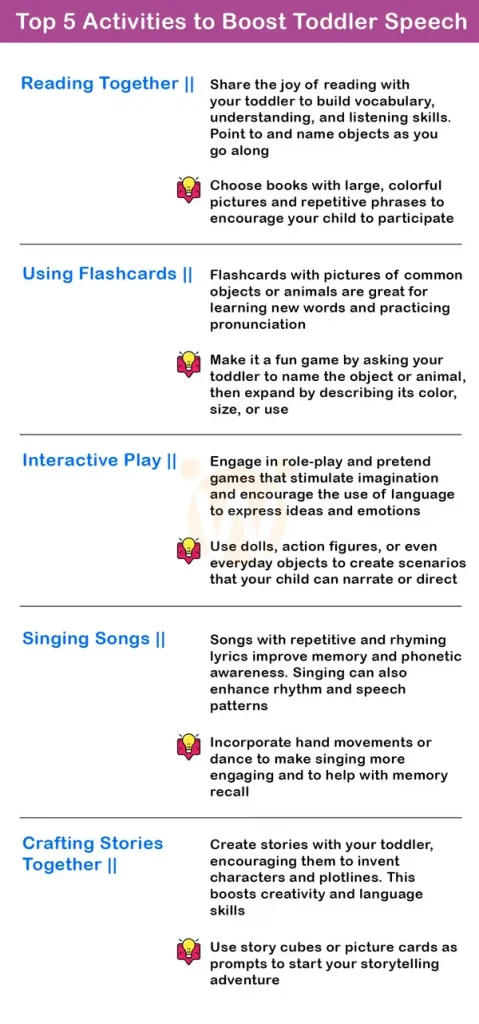
Creating a nurturing environment at home plays a crucial role in supporting your toddler’s speech and language development. Here are some practical, engaging, and simple activities that can make a significant difference.
Everyday Activities to Encourage Speech Development
- Narrate the Day: Turn daily routines into opportunities for learning. Narrate your activities as you go about them, from dressing up to cooking. For instance, “We’re putting on your blue shirt now. Look, it’s blue like the sky!”
- Sing Songs Together: Songs are not just fun; they’re educational. The rhythm and repetition can help your toddler catchwords and phrases, enhancing their memory and vocabulary.
- Simple Games: Games like ‘Peek-a-boo’ and ‘Pat-a-cake’ not only amuse toddlers but also teach them turn-taking and attention to sounds.
Read more: Home-Based Speech Therapy Activities for 1-2 Years Kids
Creating a Stimulating Language Environment
- Designate a Reading Corner: Create a cozy reading nook with a variety of books. This special spot can become a place of exploration and learning for your child.
- Limit Screen Time: Encourage activities that require interaction over passive screen time. Conversations, storytime, and play are much more beneficial for language development.
- Use Everyday Objects for Learning: Label items around the house with their names to make learning new words a part of everyday life.
Using Play to Enhance Communication
- Interactive Play: Engage in play that requires back-and-forth communication. Pretend play, such as running a small shop or playing house, can be particularly effective.
- Encourage Use of Words: Prompt your child to use words during play. If they point to a toy, encourage them by saying, “Do you want the ball? Say ‘ball.'”
- Playdates: When possible, organize playdates with children of a similar age. Social interaction is a great way to encourage speech through imitation and social play.
Engaging Activities to Boost Toddler Speech Development
| Activity Type | Skills Developed | Description |
|---|---|---|
| Picture Flashcards | Vocabulary, Recognition | Use flashcards with pictures of common objects or animals to encourage word identification and pronunciation. |
| Singing Nursery Rhymes | Memory, Rhythm, Language | Sing songs together, focusing on repetition and rhythm to enhance memory and language skills. |
| Simple Board Games | Turn-taking, Vocabulary | Play games that require taking turns and using simple language, helping with social skills and language use. |
| Storytelling Time | Imagination, Vocabulary | Create stories together, encouraging your child to add details or suggest what happens next. |
| Interactive Reading | Comprehension, Vocabulary | Read books with interactive elements (flaps, textures), asking questions and discussing the story. |
| Role-Playing | Social Skills, Language | Engage in role-playing activities, like playing ‘store’ or ‘doctor,’ to practice conversational skills. |
| Art and Craft Projects | Descriptive Language, Following Instructions | Use art projects to describe actions, objects, and colors, enhancing vocabulary and comprehension. |
The Importance of Reading and Storytelling
- Daily Reading Time: Set aside time each day for reading together. This not only helps in building vocabulary but also in understanding sentence structure and storytelling.
- Ask Questions: While reading, pause to ask questions about the story, such as “What do you think will happen next?” This encourages critical thinking and engagement.
- Tell Your Own Stories: Share stories from your childhood or make up new ones. This can be a fun way to introduce new vocabulary and concepts.
Essential Nutrients for Toddler Growth: What to Feed for Optimal Development
| Nutrient | Foods to Include | Benefits for Development | Serving Ideas |
|---|---|---|---|
| Omega-3 Fatty Acids | Salmon, flaxseeds, chia seeds | Supports brain health and cognitive development | Salmon fishcakes; chia pudding |
| Iron | Spinach, red meat, lentils | Essential for cognitive development | Beef and vegetable stew; lentil soup |
| Zinc | Pumpkin seeds, beef, chickpeas | Important for memory and learning | Roasted pumpkin seeds as a snack; chickpea hummus |
| Vitamin D | Fortified cereals, egg yolks, mushrooms | Supports bone health and immune function | Mushroom omelette; fortified cereal with milk |
| Calcium | Milk, cheese, broccoli | Crucial for bone growth and nerve function | Broccoli and cheese bake; yogurt with fruit |
| Vitamin E | Almonds, sweet potato, avocado | Protects brain tissue and supports immune health | Sweet potato fries; avocado toast |
| Vitamin C | Oranges, strawberries, bell peppers | Enhances iron absorption and supports the immune system | Strawberry smoothie; bell pepper slices with dip |
Encouragement and Patience
The journey of supporting your toddler’s speech development is filled with ups and downs. It’s a path that requires not just the right tools and strategies but also a great deal of encouragement and patience. In this section, we’ll explore the importance of celebrating every milestone, no matter how small, and maintaining a positive, supportive environment that nurtures your child’s growth.
Celebrating Small Victories
Every child’s development is unique, and each new word, gesture, or attempt at communication is a step forward. Celebrating these small victories is crucial because it:
- Boosts Confidence: Acknowledgement and celebration make your child feel successful, encouraging them to try more.
- Reinforces Learning: Positive reinforcement helps your child associate speech and communication with positive experiences.
- Supports Bonding: Celebratory moments foster a stronger emotional connection between you and your child, enhancing their comfort and willingness to communicate.
Whether it’s a new word, a correctly used gesture, or even an attempt to mimic sounds, acknowledging these efforts with excitement and praise can significantly impact your child’s motivation and progress.
Maintaining a Positive and Supportive Environment
Creating an environment that radiates positivity and support is another cornerstone of fostering your child’s speech development. Here’s how a nurturing atmosphere can make a difference:
- Encourages Risk-Taking: In a supportive setting, children feel safe to experiment with sounds and words without fear of criticism, which is vital for learning.
- Reduces Frustration: Both you and your child may experience moments of frustration. A positive outlook helps manage these challenges more effectively, turning obstacles into opportunities for growth.
- Promotes Overall Well-Being: A happy, stress-free environment contributes to your child’s overall well-being, which is conducive to learning and development in all areas, including speech.
How to maintain this environment:
- Stay Patient: Understand that progress may be slow and non-linear. Patience shows your child that you’re with them on this journey, no matter how long it takes.
- Use Encouraging Language: Focus on what your child is doing right. Use phrases like “I love how you tried to say that!” or “You’re doing so well with your sounds!”
- Model Positivity: Children mirror the attitudes and behaviors they see. By demonstrating a positive approach to challenges, you teach your child resilience and optimism.
In the grand scheme of things, the journey of speech development is just one part of your child’s growth. By celebrating each step forward and maintaining a positive, supportive home environment, you’re not just aiding their communication skills; you’re also laying the foundation for a confident, happy child.
At Wellness Hub, we understand that each child’s path to speech development is unique. We’re here to support you with resources, advice, and encouragement every step of the way. Remember, your patience, understanding, and positive reinforcement are key to nurturing your child’s potential. Together, let’s celebrate every small victory and maintain an environment that champions your child’s growth and development.
Conclusion
As we conclude our guide on supporting toddlers with speech delays, it’s vital to emphasize the importance of early recognition and proactive engagement in your child’s speech development. Understanding the signs and taking timely action can significantly influence their communicative abilities. The journey is marked by both challenges and achievements, demanding patience, understanding, and consistent support from you as parents and caregivers. By celebrating every small victory and creating a nurturing environment, you play a pivotal role in your child’s ability to communicate effectively.
Wellness Hub stands as a resource and ally in this journey, offering a wealth of information and support to help you navigate the complexities of speech development. Our website is a hub of resources designed to empower you with the knowledge and tools necessary for fostering your child’s speech and language skills. As we move forward, remember that every effort you make contributes to building a strong foundation for your child’s communication abilities, setting the stage for their successful interaction with the world around them.
Frequently Asked Questions:
1. How can I tell if my 2-year-old has a speech delay?
Signs of a speech delay in 2-year-olds include using fewer than 50 words, not combining words into simple sentences, and difficulty following simple instructions. Comparing your child’s abilities to typical developmental milestones can also provide insight.
2. What causes speech delays in toddlers?
Speech delays in toddlers can be due to a variety of factors, including hearing loss, oral-motor difficulties, genetic factors, neurological conditions, and environmental influences. Early identification and intervention are key to addressing these delays.
3. When should I seek professional help for my toddler’s speech delay?
It’s advisable to consult a pediatrician or a speech-language pathologist if your child isn’t meeting speech and language milestones, such as using at least 50 words by age 2 or combining words into sentences by age 3.
4. Can speech therapy apps help my child?
Speech therapy apps can be a valuable supplement to traditional speech therapy, offering engaging ways for children to practice their speech and language skills. However, they should not replace consultation and treatment from certified professionals.
5. What are some effective home activities to support my toddler’s speech development?
Engaging in everyday activities like reading together, using flashcards, playing simple games that encourage turn-taking, and incorporating play that promotes the use of language can significantly support your toddler’s speech development.
6. How does early intervention benefit children with speech delays?
Early intervention programs provide customized support and therapies based on a child’s specific needs, which can significantly improve their developmental outcomes. These services are most effective during the early years when the child’s brain is developing rapidly.
7. Can environmental factors influence a child’s speech development?
Yes, environmental factors, such as the amount of verbal interaction and stimulation a child receives, can greatly influence their speech and language development. Children thrive in environments where they are engaged in conversation, read to, and encouraged to express themselves.
8. Where can I find more resources to support my child’s speech development?
Wellness Hub offers a comprehensive collection of articles, tips, and resources designed to support parents and caregivers of children experiencing speech delays. Visit our website for expert advice and strategies tailored to your child’s needs.
9. What role does play have in speech development for toddlers?
Play is fundamental to a toddler’s speech and language development. It offers a natural and enjoyable way for children to learn new words, practice sounds, and develop conversational skills. Activities like pretend play, storytelling, and interactive games encourage children to express themselves and understand the role of language in communication.
10. How important is reading to my child’s speech development?
Reading plays a crucial role in enhancing a child’s speech and language skills. It introduces them to new vocabulary, helps them understand sentence structure, and fosters listening and comprehension skills. Regular reading sessions also provide a valuable opportunity for bonding and promoting a love for language from an early age.
About the Author:
Rajini Darugupally
M.Sc., Speech-Language Pathologist (9+ years of experience)
Rajini is a passionate and dedicated Speech-Language Pathologist with over 9+ years of experience, specializing in both developmental speech and language disorders in children and rehabilitation in adults. Driven by a desire to empower each individual to find their voice, Rajini brings a wealth of experience and a warm, genuine approach to therapy.
Currently, at Wellness Hub, she thrives in a team environment that values innovation, compassion, and achieving results for their clients.
Connect with Rajini to learn more about how she can help you or your loved one find their voice.
Book your Free Consultation Today
Parent/Caregiver Info:
Client’s Details:
* Error Message
